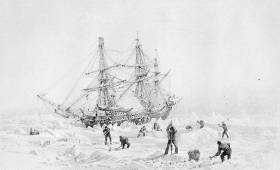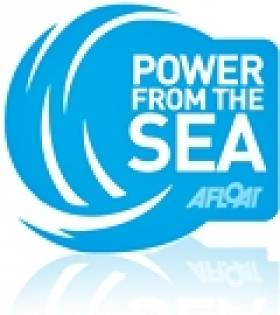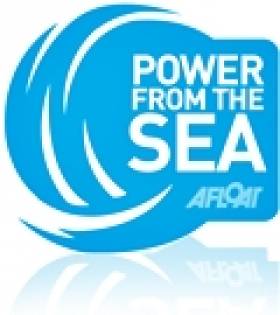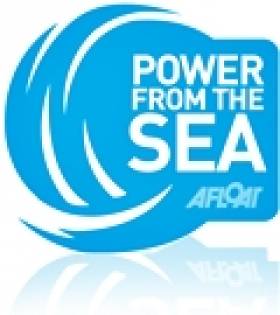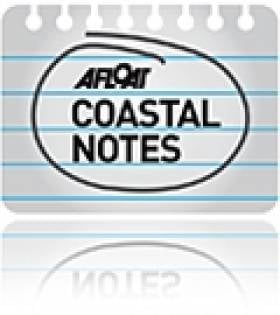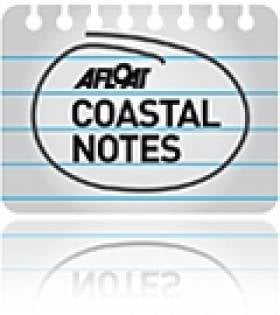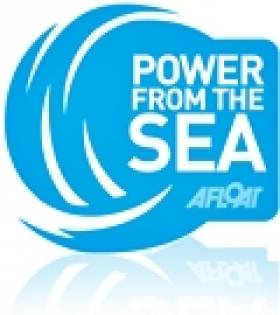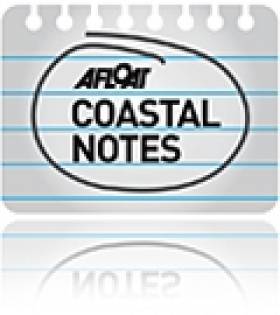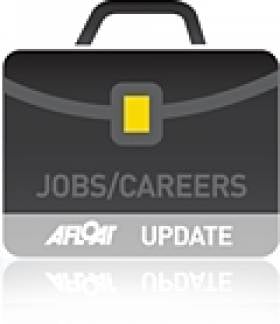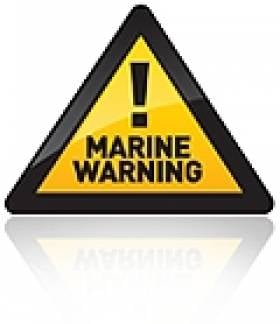Displaying items by tag: exploration
Discovery Of Second Ship From Franklin's Lost Expedition May Rewrite History Of Northwest Passage
#HMSTerror - The discovery of what appears to be the wreck of the long-lost HMS Terror may rewrite the history of one of the biggest mysteries of polar exploration.
According to The Guardian, the nearly completely intact Vesuvius-class bomb vessel was found in a stroke of luck by researchers in an Arctic bay in the far north of Canada.
And their find was almost exactly 170 years to the day since the Terror and sister ship HMS Erebus were first trapped in polar ice northwest of King William Island in Victoria Strait.
Both vessels were part of an expedition by Sir John Franklin to complete the Northwest Passage in the 1840s, but Franklin did not live to see the final days of the ill-fated mission.
He was succeeded in June 1847 by Banbridge native Captain Francis Crozier, whose last known effort, as evident from a scrawled note from previous recovered records, was an attempt a year later to lead the remaining crew to safety along a river to the south, though no trace of their movements has been found.
However, the discovery of the Terror some 100km south of where it was previously believed crushed by the ice opens up a wealth of questions as to how Capt Crozier and his crew survived the extremes of the region for so long.
The Guardian has much more on the story HERE.
New Taxes for Offshore Petroleum Exploration
#offshorepetroleum – The Minister for Communications, Energy and Natural Resources, Mr. Pat Rabbitte T.D. has today announced that the taxation provisions relating to petroleum exploration and production are to be revised upwards to provide for an increased financial return to the State from discoveries made under future exploration licences and licensing options.
Speaking this morning at the "Our Ocean Wealth Conference" in Dublin Castle, Minister Rabbitte, who also highlighted the exciting potential in offshore renewable energy, recalled that last year he had told the Oireachtas that he intended to seek independent expert advice on the "fitness-for-purpose" of Ireland's fiscal terms, such advice to focus on what level of fiscal gain is achievable for the State and its citizens and, equally important, on the mechanisms best suited to produce such a gain. International experts in the sector, Wood mackenzie, were subsequently engaged to provide that advice.
Minister Rabbitte announced that having received and considered Wood mackenzie's comprehensive and detailed report that he had sought agreement of the Government that Ireland's oil and gas fiscal terms should be revised along the lines recommended. He said that he concurred with the Wood mackenzie recommendation that there should be no retroactive change to the fiscal terms applying to existing exploration authorisations.
Commenting on the detail of the report Minister Rabbitte pointed to the key central conclusion which is that there is scope for strengthening the current fiscal system in terms of:
• providing for an increase in the overall State take;
• ensuring an earlier share of revenue for the State; and
• addressing what Wood mackenzie consider to be inconsistencies in the current fiscal system.
The principal recommendations made by Wood mackenzie are as follows:
• For now Ireland should maintain a concession system, with industry rather than the State bearing the risk associated with investing in exploration;
• Going forward a form of production profit tax should continue to apply in Ireland, but for discoveries made under future licences the form of this tax should be revised;
• The tax should be charged on a field-by-field basis with the rate varying according to the profitability of the field and charged on each field's net profits;
• That the revised tax should include a minimum payment at a rate of 5% which would function like a royalty and would result in the State receiving a share of revenue in every year that a field is selling production;
• That the revised tax rates should be higher than the Profit Resource Rent Tax currently in place, thereby ensuring a higher share for the State from the most profitable fields. This would result in a maximum rate of 55% applying in the case of new licences, compared with a maximum rate of 40% under the current fiscal regime; and
• That the corporation tax rate applying to petroleum production should remain at 25%.
These recommendations flow from a comparative analysis between Ireland and nine other comparable hydrocarbon producing nations such as Newfoundland and Labrador, New Zealand, Spain and South Africa amongst others, which can be found in the report.
Minister Rabbitte concluded that "By acting now and setting out Government policy on this issue, it is my intention to communicate a clear message in relation to the stability of Ireland's fiscal regime for the oil and gas exploration sector. For existing licences no changes are proposed. For future prospective licence holders a clear regime is being set out and the rationale for that regime has been explained. This should further engender industry confidence in the stability and predictability of Ireland's oil and gas fiscal terms and allow the industry to focus on effective and timely exploration effort. "
#powerfromthesea – Speaking in London at a debate hosted by the London Irish Business Society, Minister of State, Fergus O'Dowd T.D., said "Offshore Ireland has a significant potential for oil and gas finds. Recent discoveries and on-going petroleum research indicate a positive resource potential, but how this unfolds will vary depending on the level of exploration activity and its success."
The Minister went on to say "It is only through active exploration that the potential of the Irish offshore will be proven. Ireland's offshore area is vast, – 700,000 sq km approximately, but there has been relatively few commercial successes in over forty years exploration. We need increased levels of exploration activity, in particular exploration drilling levels if true potential is to be proven".
The Minister confirmed the Government intended to formally commence the next licensing round in the coming months and pointed to a number of initiatives by the Government aimed at improving the perspective on prospectivity offshore Ireland by enhancing data availability and moving to de-risk exploration effort. In particular, he pointed to the commencement in June 2013 by far the largest regional 2D seismic survey ever to be acquired in the Irish offshore. He also highlighted the research that he and Minister Rabbitte had commenced to review the fitness for purpose of Ireland's Fiscal Terms and his expectation that the outcome of that review would be available to inform the next licensing round.
Minister O'Dowd underlined the new interest in Ireland, pointing to the significant new entrants to the Irish offshore following the 2011 round and his determination to build on this momentum. The Minister concluded by stressing "Ireland is open for Business, there are good opportunities for accessing exploration acreage and Ireland has modern, open, transparent and effective regulatory processes."
Exploration Licences Granted in Atlantic Margin Licensing Round
Minister for Natural Resources, Fergus O'Dowd, today announced the timing and outline of the next Atlantic Margin Oil and Gas Exploration Licensing Round. The full detail of the Round will be announced after a review of oil and gas fiscal terms is complete in early 2014.
The Round is scheduled to open in April 2014 and will close in September 2015. It will include all of Ireland's major Atlantic basins, and the form of licence on offer will be a two year licensing option.
Speaking at the Atlantic Ireland Conference in Dublin this morning, Minister O'Dowd highlighted the increased interest in the oil and gas potential of the Irish Offshore.
"It is a fact that Ireland competes for mobile exploration investment in the same way it competes for Foreign Direct Investment in already established onshore sectors," said Minister O'Dowd.
"The Government's strategy for the exploitation of the State's natural hydrocarbon resources aims to maximise the level of exploration activity and increase the level of production activity, while ensuring a fair return to the State from these activities.
"It is important then that the State provides suitable opportunities for international investors and provides the right environment to encourage industry to take the risk associated with investing in exploration."
The Minister indicated that the details of the forthcoming Atlantic Margin Licensing Round would not be finalised until after a review of oil and gas fiscal terms is complete in early 2014.
"Minister Rabbitte and I have announced that we are seeking further independent expert advice on the "fitness-for-purpose" of Ireland's fiscal terms.
"Such expert advice will focus on what level of fiscal gain is achievable for the State and its citizens and, also on the mechanisms best suited to produce such a gain.
"It is intended to bring consideration of this matter to a conclusion in the coming months. This will ensure that the next licensing round can be launched against a backdrop of regulatory certainty and encourage new investment in exploration."
The Minister welcomed the recent entry into the Irish Offshore of the large independent oil companies Cairn, Kosmos and Woodside.
He noted that applications had been received by his Department to convert 12 of the 13 Licensing Options issued under the 2011 Atlantic Margin Licensing Round to full Frontier Exploration Licences, and that this would result in a step change in exploration activity levels in the coming years.
The Minister commented that "the 2011 Atlantic Licensing Round has delivered on its objectives and the challenge for us now is to build on that achievement".
In advancing the September 2015 close for the next Licensing Round the Minister stated that "in deciding on the timing of the round, I recognise the value in allowing sufficient time for oil companies to devote resources and commence work on evaluating data, so that they can make strong applications."
The Minister also indicated that the conditions of the Licensing Round will seek to address the fact that in the 2011 Licensing Round there were large areas in the Irish Offshore in respect of which no applications were received.
Noting that there had been no new commercial discoveries in the Irish Offshore since the discovery of the Corrib gas field in 1996, he stated that "whilst growth in exploration activity increases the chance of commercial discoveries being made it brings no guarantees. What we are witnessing in our offshore is positive and there is a clear forward momentum.
"The Government's intention is that momentum should be maintained, with the ultimate aim of ensuring that the true potential of our indigenous oil and gas resources will be realised for the benefit of our people".
#Lusitania - The owner of the Lusitania may get his wish for a return dive to the wreck of the ill-fated passenger liner after the Minister for Heritage endorsed plans for a fresh investigation into its sinking.
The Irish Times reports that Minister Jimmy Deenihan has "agreed to a broad set of exploration objectives" with Gregg Bemis, the American millionaire businessman who has had had a financial interest in the wreck since 1968, and sole ownership since 1982.
As previously reported on Afloat.ie, Bemis had been seeking permission from the Government since last September after disputing the findings of a documentary made during an expedition to the wreck in the summer of 2011.
The cruise liner - a rival of the Titanic in its day - was hit by a torpedo from a German U-boat off the Old Head of Kinsale on 7 May 1915, during the First World War, sinking in just 20 minutes and taking 1,198 lives.
However, there have long been accounts of a second explosion on the sinking vessel before it was submerged - leading some to believe that it was carrying Allied munitions in its cargo.
Bemis staged his previous expedition in a bid to discover once and for all what really happened to the Lusitania. But last year he said that the National Geographic documentary team behind 'Dark Secrets of the Lusitania' used "insufficient data" to conclude that the second explosion was from a boiler in the bowels of the ship.
The businessman's ambitions had also been thwarted by a long-running dispute with Leinster House over the State's heritage rights to the wreck site and the effect of exploration on its condition.
Minister Deenihan is reviewing a new licence application that would involve numerous dives to the wreck over the next three years, including the centenary year of the Lusitania's demise in 2015.
The Irish Times has more on the story HERE.
Dolphin Group Comments on Dalkey Island Prospect
#DALKEY ISLAND PROSPECT - The Irish Whale and Dolphin Group (IWDG) has joined the chorus of opposition to the proposed oil and gas exploration off Dalkey Island in Co Dublin.
As previously reported on Afloat.ie, Providence Resources has applied for a foreshore licence to search for oil or gas about 6km out to sea on the Kish Bank Basin.
But the prospect has provoked a split in the local community over the potential risks and benefits, with many calling for a public enquiry into the licence before it is granted.
This evening an urgent meeting in Dun Laoghaire will address the public's concerns, which have been echoed by the IWDG.
"The Kish Bank and adjacent waters are important for cetaceans," said the group in a statement. "In addition, sightings of bottlenose dolphins have increased dramatically in the area following the presence of a group of three individuals since August 2010."
The IWDG is concerned about the potential effects on dolphins and porpoises that "could due to noise generated from the drilling process", noting that "there is little published data on the intensity and effects of sound generated by drilling".
Protest group Protect Our Coast has launched a online petition against the Dalkey Island Prospect citing concerns over the proximity of the drilling area to the mainland as well as the Special Protection Area of Dalkey Island, which is a haven for marine wildlife.
- Irish Whale and Dolphin Group
- IWDG
- Dalkey Island Prospect
- Coastal Notes
- Dalkey Island
- Dublin
- oil and gas
- exploration
- drilling
- Providence Resources
- foreshore licence
- Kish Bank Basin
- community
- Dun Laoghaire
- bottlenose dolphins
- Porpoises
- Cetaceans
- noise
- sound
- Protect Our Coast
- protest
- petition
- Special Protection Area
- marine wildlife
Oil and Gas Firm Issued Licence to Explore Off Dalkey Island
#POWER FROM THE SEA - Irish oil and gas firm Providence Resources has been awarded a licence to explore near Dalkey Island, the Irish Independent reports.
The standard licence issued by the Department of Communications, Energy and Natural Resources lasts for up to six years, split into two three-year phases.
Providence hopes to drill at least one well during the initial phase in the Kish Bank Basin, where previous exploration drilling confirmed the presence of oil suitable for petroleum production.
The group is also applying for a foreshore licence for the purpose of well site surveys and drilling operations.
As previously reported on Afloat.ie, Providence Resources is one of the 12 companies that were awarded 13 Licensing Options between them in the 2011 Atlantic Margin Licensing Round.
The Irish Independent has more on the story HERE.
Shipwreck Contains Largest Ever Silver Haul Found At Sea
A shipwreck off the southwest coast of Ireland has been found to contain the largest ever haul of precious metal at sea.
Some 200 tonnes of silver worth around €172m were discovered in the wreck of the British cargo ship SS Gairsoppa by a US exploration company, BBC News reports.
The UK merchant vessel was sunk by a German U-boat in 1941 as it was trying to reach shelter in Ireland.
Odyssey Marine, the firm responsible for the discovery, says it is now planning for the recovery of its cargo, with work expected to begin in spring next year.
"By finding this shipwreck and telling the story of its loss, we pay tribute to the brave merchant sailors who lost their lives," said the company's chief archaeologist Neil Dobson.
As per the terms of its contract with the UK Department of Transport, Odyssey Marine will get to keep 80% of the silver's value as profit.
The arrangement has been criticised for allegedly being more about "treasure hunting" than marine archaeology.
"Legitimate, professional archaeologists do not engage in the buying, selling, or valuing of artefacts," writes Mark Staniforth at The Conversation.
BBC News has more on the story HERE.
Maritime Management Seek Crew Manager
Maritime Management is seeking a Crew Manager for their fleet of bulk, reefer and exploration vessels. Previous experience in a similar role is important. The position requires English as the working language but if you are multi-lingual, especially Russian, this will be an advantage. All applicants must have an EU working entitlement. For further information and contact details logon HERE.
In 2002 Maritime Management was founded and is a supplier of services to the international maritime and shipping industry in Ireland, particularly those companies who are looking at Ireland as a base for their maritime operations. The company's primary services are ship management, maritime consultancy and marine surveying.
For further information about Maritime Management logon to www.bmml.ie
Tony O'Reilly to drill Dublin Bay for oil?
“We are delighted to confirm that our ongoing analysis of the Kish Bank Basin has revealed the presence of a large untested structure that warrants further investigation," said O'Reilly.
"The Dalkey Island exploration prospect presents the potential for a large oil accumulation in shallow water off the east coast of Ireland. The partners have agreed on a focused work programme aimed at further de-risking this prospect, prior to any drilling programme."
The company, a partner of Malaysian Petrol outfit Petronas, has also identified the bank as a prospect for carbon sequestration storage, with a capacity of up to 270 million tonnes of gas.
A link to the full release is here. (pdf download)


























